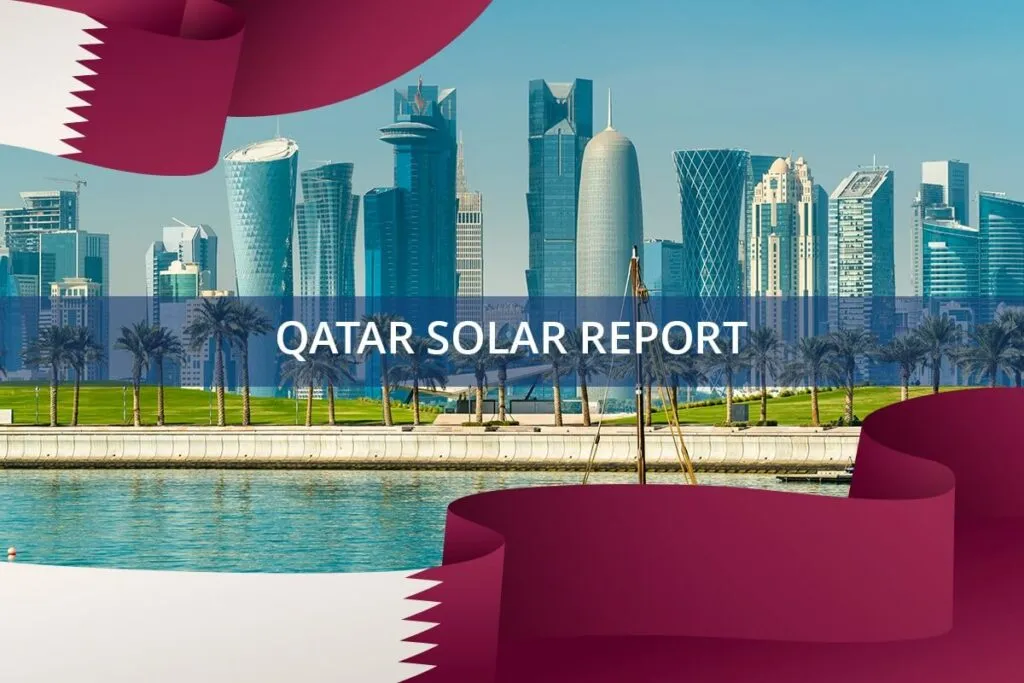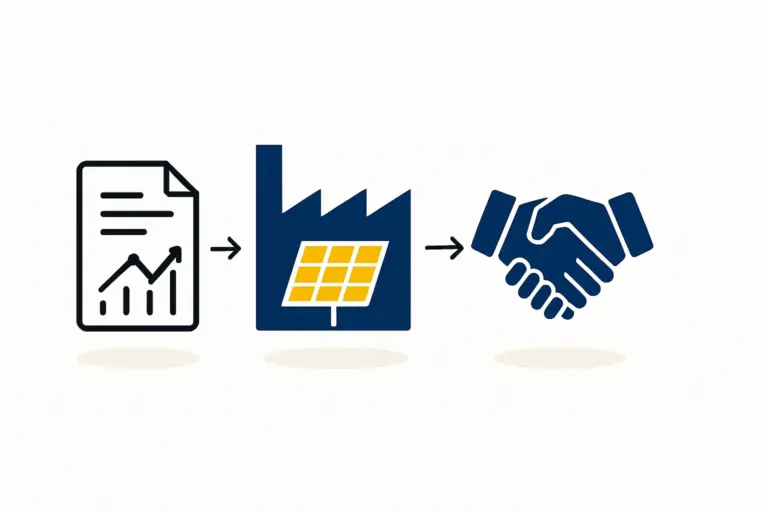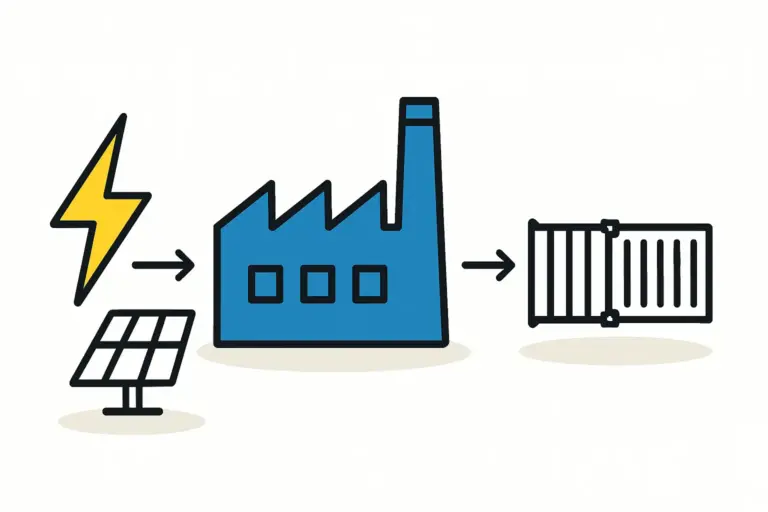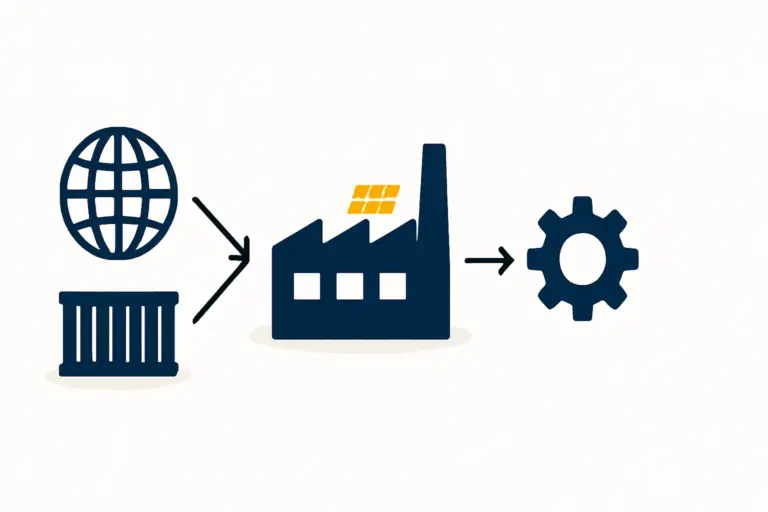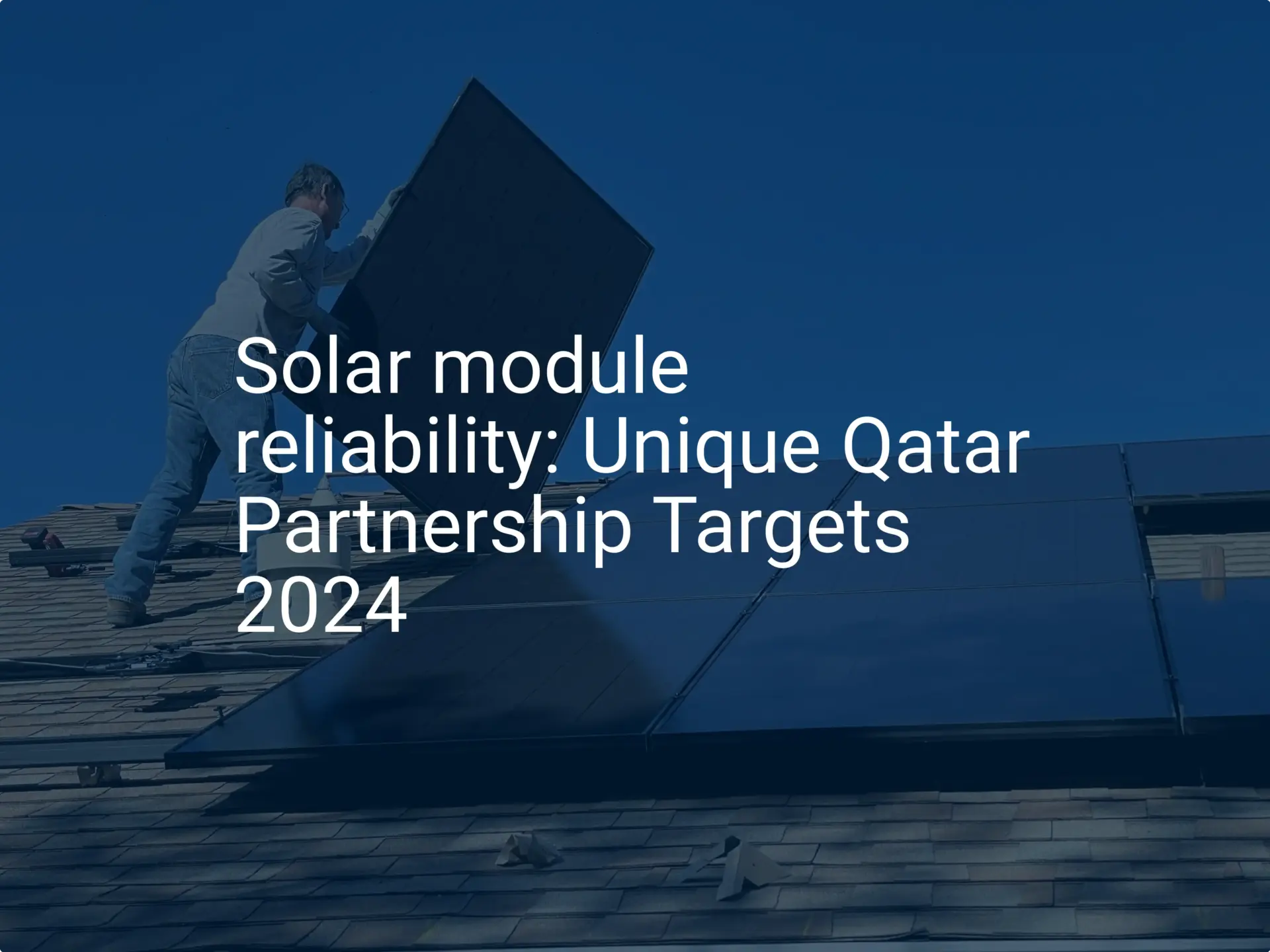For any international entrepreneur considering entry into the solar manufacturing sector, the choice of location is one of the most consequential decisions. It influences everything from initial investment costs to long-term profitability and market access.
While many regions offer incentives, Qatar has cultivated a uniquely compelling environment, particularly through its dedicated free zones. The country’s strategic shift, outlined in its National Vision 2030, actively promotes economic diversification, with renewable energy manufacturing as a key pillar of this transformation.
This guide examines the legal framework, tax benefits, and logistical infrastructure that make Qatar’s free zones an especially attractive proposition for investors, particularly those from outside the solar industry.
Understanding Qatar’s Free Zone Authority (QFZA)
The Qatar Free Zones Authority (QFZA) is the governmental body responsible for the development and regulation of its world-class free zones. QFZA’s mandate is to attract strategic foreign investment by offering a streamlined and highly competitive business environment. Two primary zones operate under its purview:
-
Ras Bufontas: Located adjacent to Hamad International Airport, this zone is tailored for industries requiring rapid logistics and air freight capabilities, such as light manufacturing and technology services.
-
Umm Alhoul: Situated next to Hamad Port, the world’s largest greenfield port, this zone is designed for heavy industry, maritime sectors, and manufacturing that relies on sea freight.

For a solar module manufacturing operation—which involves importing heavy raw materials like glass and aluminum and exporting bulky finished products—the Umm Alhoul Free Zone offers a distinct logistical advantage.
Key Financial and Legal Advantages for Solar Manufacturers
The QFZA framework is built on powerful incentives designed to de-risk investment and maximize long-term operational viability. For a prospective solar factory owner, these are not minor benefits; they are fundamental to the business case.
100% Foreign Ownership: A Critical Enabler
Perhaps the most significant legal advantage is the provision for 100% foreign ownership of the established entity. In many jurisdictions, a local partner is a mandatory requirement, which can introduce complexities in governance, profit-sharing, and operational control. The QFZA model allows an entrepreneur to retain full equity and decision-making authority, simplifying the corporate structure and ensuring the strategic vision remains intact.
The 20-Year Tax Holiday: A Long-Term Financial Cornerstone
Investors establishing a business within a Qatari free zone benefit from a 20-year tax holiday. This exemption applies to both corporate and personal income taxes. For a capital-intensive venture like a solar module factory, this profoundly impacts financial projections. It allows capital to be reinvested into the business for expansion, technology upgrades, or market development, accelerating the path to profitability and improving the overall solar factory investment requirements.
Customs and Import Duty Exemptions
A solar module factory is fundamentally an assembly operation that relies on a global supply chain for inputs, including solar cells, glass, EVA films, and aluminum frames. QFZA offers a complete exemption from customs duties on all imported goods, machinery, and raw materials. This directly reduces the initial setup cost of a turnkey solar module production line and lowers the ongoing operational cost per module produced, enhancing the factory’s price competitiveness in the global market.
Logistical Excellence: Infrastructure and Market Access
Beyond financial incentives, Qatar has invested heavily in creating a world-class logistical backbone that directly supports manufacturing and export-oriented businesses.
World-Class Port and Airport Connectivity
The proximity of the Umm Alhoul zone to Hamad Port is a decisive advantage. The port’s state-of-the-art facilities ensure efficient handling of containerized raw materials and finished goods, minimizing turnaround times and logistical costs. This direct access to global shipping lanes is crucial for sourcing materials from Asia and Europe and for exporting finished solar modules to customers across the Middle East, Africa, and beyond.

A Strategic Hub for Regional Distribution
Qatar’s stable and strategically central location in the Gulf provides a secure and efficient base for supplying the rapidly growing renewable energy markets in the MENA region. Establishing a manufacturing presence here provides a competitive edge in serving these neighboring markets, reducing shipping times and costs compared to factories located in more distant regions. This proximity is particularly valuable for serving areas with high solar irradiation, where demand for PV technology is accelerating.
The Establishment Process: A Streamlined Framework
While the benefits are substantial, accessing them requires following a formal process. QFZA has designed a streamlined, investor-focused procedure to simplify market entry. The typical steps include:
-
Initial Application: Submission of a detailed business plan outlining the project’s scope, financial projections, and operational strategy.
-
Company Registration: Upon approval, the legal entity is formally registered within the free zone.
-
Licensing and Permits: Securing the necessary operational licenses for manufacturing.
-
Facility Arrangement: Leasing land for custom construction or opting for pre-built light industrial units, depending on the scale of the operation.
Based on experience from J.v.G. turnkey projects, having a comprehensive and professionally prepared business plan is the most critical element for a successful application. It demonstrates a clear understanding of the project’s technical, financial, and market dynamics.
Common Questions for Entrepreneurs (FAQ)
What is the minimum viable scale for a factory in a Qatar Free Zone?
While there is no strict minimum, a typical starting point for a commercially viable operation would be a 50 MW to 100 MW annual production capacity. The specific scale will depend on the business plan and target market.
How long does the setup process typically take?
From initial application to the commissioning of the production line, a realistic timeline is between 9 and 12 months. This includes company registration, facility preparation, and the installation of manufacturing equipment.
Are there requirements for local hiring or partners?
QFZA’s framework is designed to support foreign investors. While there are no mandatory local partner requirements, the authority encourages and facilitates hiring skilled local and international talent already residing in Qatar.
What are the primary challenges to consider?
The main challenges are not unique to Qatar but are universal to starting a new manufacturing venture. These include developing a robust supply chain for raw materials, building a skilled technical team, and securing offtake agreements for the finished modules. The key is thorough planning before the investment is made.
Next Steps for Deeper Exploration
Establishing a solar module factory in a Qatari free zone is a compelling, strategic opportunity. The combination of 100% foreign ownership, a 20-year tax holiday, and world-class logistics creates a powerful foundation for a successful and profitable manufacturing venture.
For entrepreneurs ready to move from concept to execution, the next logical step is to develop a detailed feasibility study and a meticulous plan for selecting the right manufacturing equipment. A clear understanding of these elements is essential before engaging with any investment authority.


